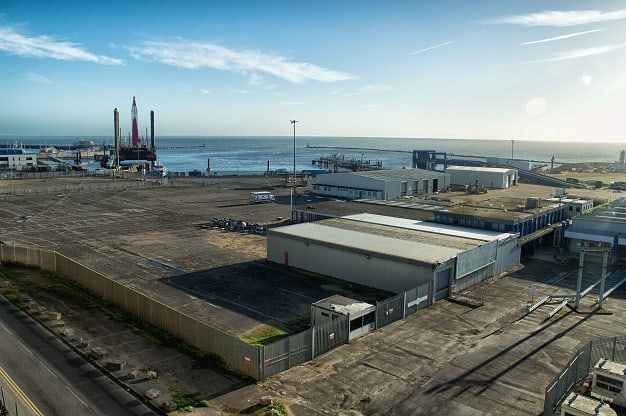
A memorandum to the House of Commons released by the National Audit Office reveals that Seaborne Freight, which proposes a Ramsgate/Ostend ferry service, was flagged as being a ‘high risk proposition’ before government awarded the firm a post-Brexit extra capacity contract.
The memorandum also reveals the Department for Transport planned to invest £3 million of government funds for work to make Ramsgate Port ready for a new ferry service and would have bought 50% of tickets for extra capacity crossings.
The £13.8 million government contract with Seaborne Freight was awarded in December as part of Post-Brexit resilience plans to ease possible backlogs at Dover {Port and the Channel Tunnel – despite Seaborne being a start-up company with no vessels or track record.

The deal was axed last week with government saying Seaborne would not reach its contractual requirements and the firm’s backer Arklow Shipping had pulled out of the deal.
Arklow’s involvement had not been made public prior to the announcement of Seaborne’s contract being terminated.
The contract award to Seaborne came under fire from Labour MPs and a Parliament select committee, which last month questioned the legality of the ferry agreements, particularly Seaborne Freight.

In Parliament Secretary of State Chris Grayling (pictured) previously said Seaborne’s “business and operational plans were assessed for the Department by external advisers, including Slaughter and May, Deloitte and Mott MacDonald.
The papers from the National Audit Office reveal this process to evaluate the three ferry firms awarded contracts cost approximately £800,000.
Unable to meet requirements
But the report adds: “Seaborne were unable to satisfactorily meet the requirements of the economic and financial standing assessment.
“The Department identified that the bid from Seaborne was a high-risk proposition, requiring a different approach to the other operators. It identified material risks to consider ahead of signing the contract.”
The NAO document says the assessment showed that despite Seaborne having an experienced management team: “this is a new operation and any new organisation has the potential to face teething troubles”.
It adds that Seaborne did not have ships: “they have identified ships for use but need to finalise contracts. The contracting itself is straightforward as long as the ships stay available and we cannot be comfortable until they are chartered”.
£3 million funding for Ramsgate Port
And it highlighted that the Port of Ramsgate needed work to make it ready for operations.

The report adds: “The Department has entered discussions to provide support and funding to Thanet District Council of up to £3 million for work at the port. On 20 December 2018, the Chancellor of the Exchequer wrote to the Department’s Secretary of State asking that officials work to identify the approach to funding this.”
Checks
On December 17, 2018, the Department asked its legal advisers to do a basic background check on Seaborne. These checks included Seaborne’s filing history with Companies House and that no winding-up orders had been made against it. The Department says it was not aware at the time of allegations that were made about the directors of Seaborne and says these “were not substantiated by checks it had undertaken prior to contract award.”
It also reveals that Seaborne said the ‘pizza delivery’ terms and conditions of service on the Seaborne website were “a draft place-holder that contained errors and that its booking system, available only to approved trade customers, will include the actual terms and conditions of sale.”
Contract
The Seaborne route would have provided 3.8% of the Brexit resilience extra ferry capacity, with the government buying half of all tickets for the extra crossings.
The document also reveals that the agreed start date was not March 29 – when the UK is due to exit the European Union, but 26 April to allow a lower risk.
The contract would have lasted for six months with the option to extend to 12 months.
The contract with Seaborne also included a clause “it would only come into force if the Department provided up to £3 million in funds to Thanet District Council. These funds were to enable the completion of works required at Ramsgate port so that Seaborne could operate from it by April 2019.”
If a deal with the European Union (EU) is agreed and ratified by the end of March 2019, the Department of Transport can decide to either use the capacity it has bought (now only with DFDS and Brittany Ferries) or to trigger termination clauses which would mean compensation payments to the ferry companies.
Thanet budget

Thanet council issued a statement calling the axing of the contract with Seaborne Freight, due to backers pulling out, ‘disappointing.
The authority has plans to ditch £500,000 funding to keep Ramsgate port in readiness for a ferry operation and axe a further £130,000, totalling £630,000 – or £730,000 in a full year -from its 2019/20 budget if no ferry contract is signed.
The budget report was withdrawn on February 7 following discussions between Thanet council leader Bob Bayford and Mr Grayling.
Cllr Bayford said that although an ‘uncomfortable decision’ may have to be made to close sections of the port and make cost savings the approach from the Department for Transport would delay that until a date on or before March 11.
Ramsgate Port has racked up a £20million deficit since 2010.
A little over 24 hours later news broke that the government had ditched the deal with Seaborne.

